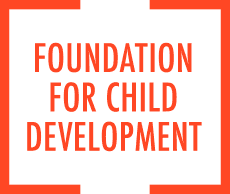https://www.fcd-us.org/full-day-kindergarten-a-study-of-state-policies-in-the-united-states/
The 50-state study finds that less than two-thirds of America’s five-year-olds attend a full-day program and only nine states guarantee universal full-day kindergarten.
Policymakers asked to increase access, improve quality and boost funding for full-day kindergarten
The Education Commission of the States (ECS), the nation’s preeminent, nonpartisan source of information about education policy, released todayhas published a new study that shows more must be done to increase access to full-day kindergarten for all children. While enrollment in full-day kindergarten has increased nine-fold over the last twenty years, less than two-thirds of America’s five-year-olds attend a full-day program and only nine states guarantee universal full-day kindergarten.
ECS is calling on state legislators, school board members, state education department leaders and other policymakers to:
- Ensure full-day kindergarten is a component of states’ early learning and elementary school improvement efforts
- Require school districts to provide full-day kindergarten
- Fully fund full-day kindergarten and provide other financial incentives to increase access to full-day kindergarten.
The report, Full-Day Kindergarten: A Study of State Policies in the United States, indicates that many states:
- Lack policies that provide universal access to full-day kindergarten
- Lack adequate funding policies for full-day kindergarten
- Lack policies that address the quality of full-day kindergarten.
The study’s findings are significant because a growing body of research confirms that the first years of life are critical regarding both cognitive and social-emotional development. Studies show that full-day kindergarten helps close achievement gaps between children.
We know that by the time children enter kindergarten, there are already differences in learning among students by race, ethnicity and income, says ECS President Piedad F. Robertson. Kindergarten is the bridge between early learning programs and primary school. State policymakers can and must play a leadership role in closing the achievement gap, and this work starts early on in a child’s academic career.
Another finding is states lack policies that define what full-day kindergarten is. This makes it difficult to compare policies, programs and outcomes across states. It also makes it harder to ensure children experience continuity as they move out of pre-kindergarten to kindergarten to 1st grade and beyond. Further, the study found that few states have standards defining what children should know and be able to do in full-day kindergarten, and most states do not require kindergarten teachers to have training in early childhood education.
To better understand how full-day kindergarten helps to close achievement gaps, ECS urges state leaders to improve data-collection efforts to determine which districts offer full-day kindergarten and the demographics of students enrolled in kindergarten. The study reveals that 22 states did not know how many school districts offered full-day kindergarten. The study also finds that only seven of the 50 states track data on both race/ethnicity and income for children enrolled in full-day kindergarten, making it challenging to gauge the impact of state policies on providing access to specific populations of children.
The numbers of children attending full-day kindergarten has steadily increased. In 2000, 63% percent of children enrolled in a kindergarten program attended full-day kindergarten. Only nine states currently guarantee universal access to full-day kindergarten (Alabama, Arkansas, Georgia, Louisiana, Maryland, Mississippi, North Carolina, South Carolina and West Virginia).
Children who attend full-day kindergarten show stronger academic gains than their counterparts in half-day kindergarten, says ECS Early Learning Program Director Kristie Kauerz. Policymakers are in a pivotal position to influence the quality of and access to full-day kindergarten. It is a critical year in children’s early education.
The study, funded by the Foundation for Child Development (https://fcd-us.org/), was conducted by ECS between 2002 and 2004. ECS staff reviewed state statutes related to kindergarten in all 50 states and surveyed kindergarten specialists in each state department of education. Most of the state policy data reported in the study can be accessed online at www.ecs.org/kindergarten in the ECS Kindergarten Database and in a series of 50-state StateNotes. These online resources are updated as state policies change.
Copies of this publication are available for $10 plus postage and handling from the Education Commission of the States Distribution Center, 700 Broadway, Suite 1200, Denver, CO 80203-3460, 303.299.3692.
###
The Education Commission of the States (ECS) is a national, nonprofit organization that helps governors, legislators, state education officials and others identify, develop and implement public policies to improve student learning at all levels. A nonpartisan organization, ECS was formed in 1965 and is located in Denver, Colorado.
